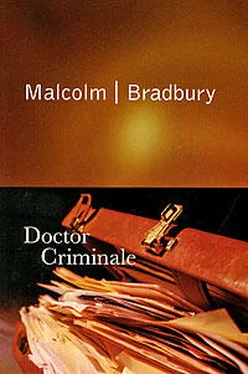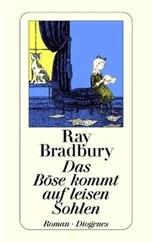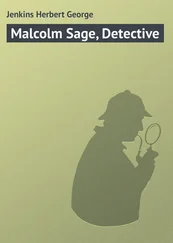Malcolm Bradbury - Doctor Criminale
Здесь есть возможность читать онлайн «Malcolm Bradbury - Doctor Criminale» весь текст электронной книги совершенно бесплатно (целиком полную версию без сокращений). В некоторых случаях можно слушать аудио, скачать через торрент в формате fb2 и присутствует краткое содержание. Город: London, Год выпуска: 2000, ISBN: 2000, Издательство: Picador, Жанр: Современная проза, на английском языке. Описание произведения, (предисловие) а так же отзывы посетителей доступны на портале библиотеки ЛибКат.
- Название:Doctor Criminale
- Автор:
- Издательство:Picador
- Жанр:
- Год:2000
- Город:London
- ISBN:978-0330390347
- Рейтинг книги:5 / 5. Голосов: 1
-
Избранное:Добавить в избранное
- Отзывы:
-
Ваша оценка:
- 100
- 1
- 2
- 3
- 4
- 5
Doctor Criminale: краткое содержание, описание и аннотация
Предлагаем к чтению аннотацию, описание, краткое содержание или предисловие (зависит от того, что написал сам автор книги «Doctor Criminale»). Если вы не нашли необходимую информацию о книге — напишите в комментариях, мы постараемся отыскать её.
Doctor Criminale — читать онлайн бесплатно полную книгу (весь текст) целиком
Ниже представлен текст книги, разбитый по страницам. Система сохранения места последней прочитанной страницы, позволяет с удобством читать онлайн бесплатно книгу «Doctor Criminale», без необходимости каждый раз заново искать на чём Вы остановились. Поставьте закладку, и сможете в любой момент перейти на страницу, на которой закончили чтение.
Интервал:
Закладка:
Of course, I was wildly delighted to get a letter from Ildiko. I was also surprised and mystified. For one thing, I couldn’t imagine how she could possibly have got my home address. Admittedly she’d had plenty of time working with the contents of my wallet, and could have found one. But since then, my career improving, I’d moved, to Islington – so far into Islington that I can’t tell you how we despise Camden. And then I couldn’t imagine how she knew I had been asked to the conference. I’d been approached late, I hadn’t even accepted, and my name wasn’t on the advance conference programme. It’s true that, when I got the telephone call inviting me to speak, I’d been told my name had been suggested by a Hungarian delegate, who called me one of the few people in Britain equipped to speak on Criminale. Perhaps this had become the chatter of the Budapest bars and bazaars. The letter bewildered me, but it did settle one thing. I picked up the telephone, called Norwich, and left a message on a machine to say I accepted their invitation.
In my opinion a university campus is a rather strange place, out of time, into space, away from the drab urban grey, in the lush urban green, caught in a separate world that seems to have little to do with everyday history. In fact it all seemed rather like the strange, happy timeless time Ildiko and I had spent together at Barolo, until at last we were ejected from paradise and thrown back on real things again. But this one was a strange form of paradise. Not so long ago, in a lush river valley some pre-postmodern architect had started pouring concrete; great staggered residence blocks, huge teaching towers, rose from the grass, speaking of mass and monumentalism and eternity. Maybe it was home to some; it was not to me. It was already history, the white cement slowly pitting and greying with age – just like the hundreds of professors of English whom I found at the opening conference reception. There they were, pressed tightly together amid breeze-block walls, looking mystified at one another, as if they had never understood before they belonged to a species that had been replicated so often, all clutching their conference wallets, inspecting each other’s lapel badges, sipping fizzy Bulgarian Riesling, and chattering extremely loudly. I pushed my way through, past fat structuralists and thin deconstructors, denimed feminists and yuppified postculturalists, past the great bookstalls and the long publishers’ tables, past the bulletin boards fluttering with news of yet more conferences, looking everywhere for Ildiko. But, though there was a sign for everything else, there was no sign of her, not a sign at all.
Every new morning I checked the mailbox in the lobby; her pigeonhole, H., was conveniently placed close to mine, J. Only an empty I. intervened. She hadn’t arrived; her conference wallet and lapel badge, her ticket for the conference trip, her gilt-edged invitation to the final conference dinner, the little touches of identity that such events are kind enough to confer on us, stayed lying there uncollected. And she certainly didn’t appear at my lecture, which frankly went quite well and attracted a small but reasonably interested audience. I rather enjoyed standing up there and giving it. As I told you, I’m a verbal person, not a visual person. Criminale at Schlossburg was perfectly right; there is no way a small flickering screen can ever really bring mental deeds to life. But perhaps, up to a point, words can. I was no scholar, and I certainly didn’t know him all that well. I had read him in snatches, seen him in brief glimpses, and I was not a literary theorist. I did not entirely understand; but I did have something to say.
What did I say? I didn’t, as I might have done a year before, talk about his mystery, his deceptions, or betrayals. I spoke about his work – the great fiction, above all Homeless , the fine drama, the elaborate gestures of his philosophy. One advantage of my travels was that I now had some useful words (like Foucault and Derrida, Horkheimer and Habermas) that are calculated to unlock the hard hearts of academics. I pointed to his place of historical importance, describing him as the philosopher not of the age of the Cold War and the atomic spy, but of the time of chaos theory, the rock video, and the Sony Walkman. In fact, I described him as a Great Thinker of the Age of Glasnost. No one better expressed, I claimed, the problematics of contemporary thought, the collapse of subjectivity, the crisis of writing, the self-erasure and near-silence of the era after humanism (a fate academic audiences always take gladly in their stride). I spoke of his great gift of irony, the final bridge for healing the contradictions and emptinesses the world has left us. I hinted, but only vaguely, as another form of irony, at his own flawed self, the head in the sky, the feet in the mire, the gap between thought and historical need, the irony that, I said, so often strikes us when we consider all the modern and postmodern masters.
As, afterwards, I gathered my notes and left the grey seminar room, a small dark-haired woman came up and shyly suggested we might take a plastic cup of coffee together. I checked out her bosom – this is a well-accepted convention in the conference world – and grasped from her lapel that she was Dr Ludmilla Markova, from Veliko Turnovo in Bulgaria. The name – of the place, not the person – rang bells; I accepted at once. She walked me off to some far more buoyant and postmodern building overlooking a pleasant broadland view, and we sat under indoor trees in the coffee bar together. ‘Yes, very good lecture, quite deconstructive, I think,’ said Miss Markova, ‘Only one thing. You understand nothing.’ ‘Very likely,’ I said, ‘I see you come from Veliko Turnovo, where he came from. Did you know him?’ ‘I am so much too young,’ said Miss Markova sharply, ‘But yes, you are right, he was born there, son of a metalworker, in a time of terrors.’ ‘Do they remember him?’ I asked. ‘Not so well,’ said Miss Markova, ‘Father supported the Nazis, so was shot for fascist after the war. After this his family was not so happy. His mother paid him to go to Budapest, to make a new life. I think he never came back.’
‘You think that helps to explain his books, his mind?’ I asked. ‘Of course,’ said Miss Markova, ‘Nobody understands Bulgaria, it is too small country, only eight million. Nobody thinks of us, our image is negative, we are always the coy of others. But Criminale is ours, someone who struggled to exist in a world of forces no one can stop. He was born in chaos, he lived in chaos. He expected chaos, he wrote of chaos. He saw the chaos that is hidden in all things, reason, history. Remember his great book is called Homeless . He had no certainties to live by, nowhere safe to go. He did not only play with nothingness. He knew it. For us chaos is not a theory, it is a condition. We do not like him so much, but he is very Bulgarian writer.’ ‘And that’s what I didn’t understand?’ I asked. ‘Oh, your lecture is like all lectures, everything about you, nothing about him,’ said Miss Markova, ‘You need a Criminale, but it must be your Criminale, not our Criminale.’ ‘He belongs everywhere,’ I said. ‘Not quite,’ said Miss Markova, ‘You talk about crisis and you mean some death of the subject or how hard it is to understand some book. You talk of the end of self and meanwhile you have very nice one, good suit and everything. You speak of disaster and despair with such confidence and hope. Perhaps you do not see what seeds you are sowing.’
‘I’m not sure what you mean,’ I said. ‘What happens to all of you here?’ asked Miss Markova, ‘Why do you want the end of humanism, a great new collectivity? I wish one day you would visit my country, very nice, also sad. Nothing works, chaos comes again, we are not Europe and cannot live like Europe. You see now what happens in Yugoslavia, not a country, by the way, just lines on the wrong map. Or Russia, anywhere. But I suppose you are much too busy in your busy nice world to come and see how life is really.’ ‘I do have to earn a living like everyone else,’ I said. ‘Of course, you cannot look at life when you must have a living,’ said Miss Markova, ‘Well, as I say to you, very good lecture, just this one criticism, you don’t mind? Where do you publish? Promise, send me a copy, or I will never see it.’ ‘I don’t think I will publish it,’ I said, ‘I’m not really an expert on Criminale.’ ‘You will,’ said Markova, ‘Send it to me when you do it, and I will criticize you, in a very friendly way. Now, don’t you want to go and hear all those angry feminists?’
Читать дальшеИнтервал:
Закладка:
Похожие книги на «Doctor Criminale»
Представляем Вашему вниманию похожие книги на «Doctor Criminale» списком для выбора. Мы отобрали схожую по названию и смыслу литературу в надежде предоставить читателям больше вариантов отыскать новые, интересные, ещё непрочитанные произведения.
Обсуждение, отзывы о книге «Doctor Criminale» и просто собственные мнения читателей. Оставьте ваши комментарии, напишите, что Вы думаете о произведении, его смысле или главных героях. Укажите что конкретно понравилось, а что нет, и почему Вы так считаете.











